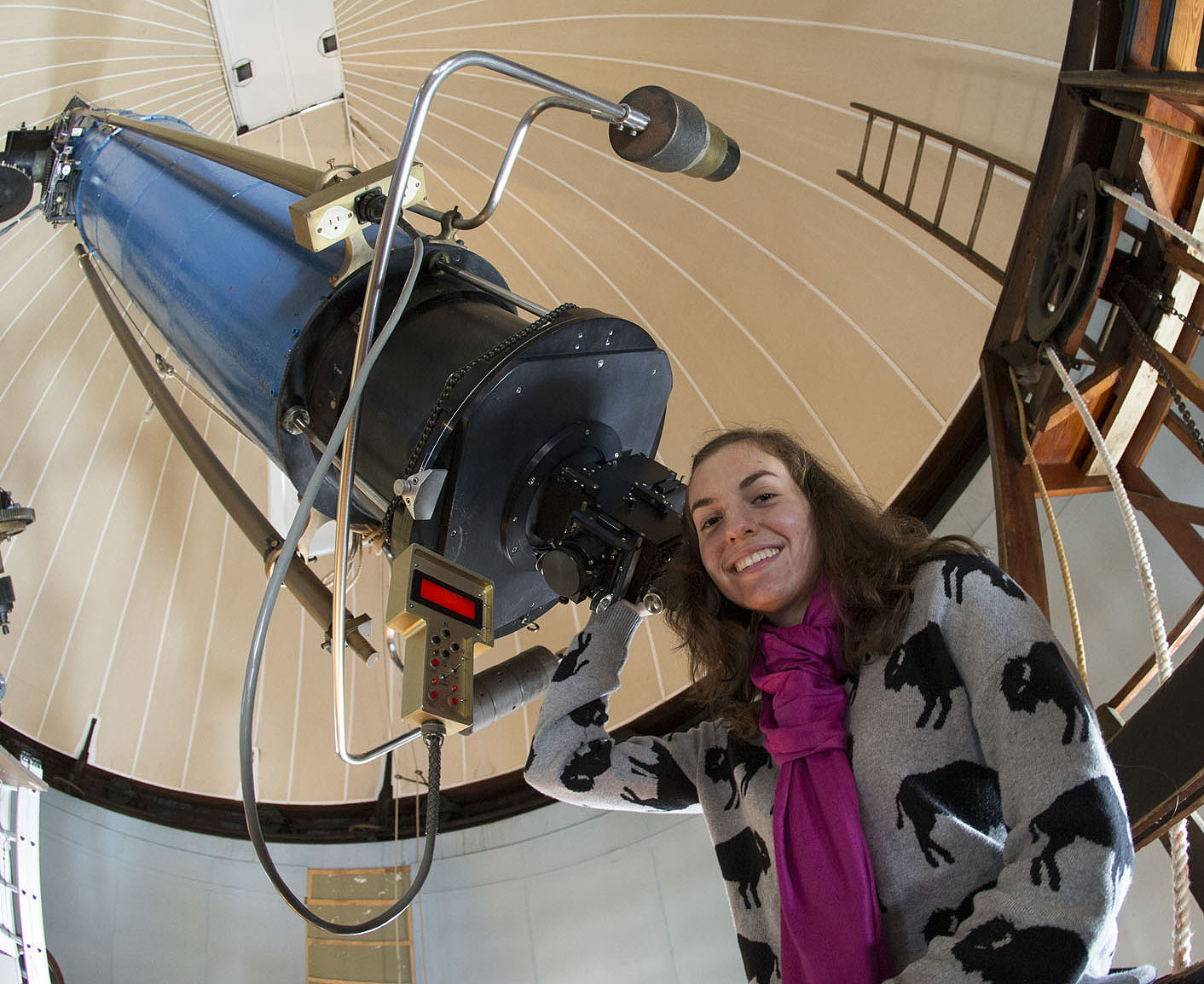The University of Virginia has awarded six “Double-’Hoo” Research Grants, which fund pairings of undergraduate and graduate students who collaborate on research projects.
Each project is awarded up to $5,000 toward research expenses, plus $500 in support to a faculty mentor. This year’s winners were selected from a pool of 50 applicants.
“This award provides a wonderful opportunity for undergraduate-graduate student pairs to propose and carry out significant research projects,” said Brian Cullaty, director of undergraduate research opportunities at the Center for Undergraduate Excellence. “The partnership allows for the undergraduate student to learn under a more experienced researcher and the graduate student to gain experience teaching and mentoring. The collaboration strengthens the design and inquiry process.”
This year’s funding was provided by the Office of Vice President for Research’s graduate studies arm, the School of Engineering and Applied Science, the College of Arts & Sciences and the Center for Undergraduate Excellence.
Participation in these projects will help undergraduates develop important skills, said Phillip A. Trella, assistant vice president for graduate studies and postdoctoral affairs in the Office of the Vice President for Research.
“The No. 1 credential for undergraduates seeking admission into a graduate program, especially a Ph.D. or research-based program, is research experience,” Trella said. “A high-quality research experience for undergrads trumps standardized test scores, because it demonstrates the qualities that faculty want in their graduate students – the ability to think of pertinent and important questions that can be addressed through research and scholarship, to think critically and independently, and to marshal evidence in order to make an argument or draw a conclusion.”
For graduate students, Trella said, mentoring is an important element.
“The opportunity to conceive of an independent project, design it and work with and mentor an undergraduate through its execution is fantastic experience that simply cannot be obtained in other ways,” Trella said. “For grad students looking to take the next step in academia, mentoring is a particularly important skill set to develop, and the ability to demonstrate it through these awards positions our students well for the next steps in their career.”
This year’s awardees include pairs researching how galaxies evolve, how cultural differences influence people in China and how politicians vote on issues involving Alzheimer’s disease.
This year’s winners:
- Catherine Zucker, 21, of Alexandria, a third-year double major in history and astrophysics in the College, and Sandra Liss, 24, of Weston, Florida, a second-year graduate student majoring in astronomy, are researching star formation and galaxy evolution through the first systematic, high-resolution and high-sensitivity study of dwarf-dwarf galaxy interactions. “Unlike more massive galaxies, dwarf galaxy mergers have never been well-researched by astronomers, despite their possible role in the formation of these more massive galaxies,” Zucker said.
- Jing Shi, 21, of Tongling, China, a second-year psychology major in the College, and Thomas Talhelm, 28, of East Lansing, Michigan, a fifth-year Ph.D. candidate in cross-cultural psychology, are researching distinct cultural differences between northern and southern residents of China. “People in the south are more collective and holistic, while people in the north are more individualistic and analytic,” Shi said. “We are interested in explaining this difference in terms of agricultural style (rice is grown in the south and wheat in the north). The theory is that rice cultivation requires more collaboration and labor that makes people more collective over the history.”
- Rachel Deitch, 20, of Arlington, a third-year government major in the College, and Andrew Clarke, 26, of Montgomery, Texas, a second-year Ph.D. candidate in American politics, will use quantitative statistical analysis and qualitative interviews to understand what determines congressional voting on Alzheimer’s legislation. “Alzheimer’s disease is one of the most important health concerns for the nation,” Deitch said. “It is the sixth-leading cause of death in the United States and the fifth-most-common cause of death in Virginia.”
- Rahim Islam, 21, of Tappahannock, a third-year computer engineering major in the Engineering School, and Juhi Ranjan, 28, of Gandhinagar, India, a third-year graduate student in computer engineering, want to develop sensing technology to detect the occupancy of rooms in a commercial building by tracking the number of people entering and exiting. “This method of sensing can not only tell if a room is occupied or not, but can also tell the live occupancy numbers across all rooms in a building, which is something the commonly used motion sensing technique cannot detect,” Ranjan said.
- Molly Booth, 21, of Ashburn, a third-year neuroscience distinguished major in the College, and Angela D. Morris, 29, of Grottoes, a third-year Ph.D. candidate in neuroscience, are studying the interaction of glial cells, which help form a functional peripheral nerve, during induced cell death. “I became interested in the topic of neuro-degeneration specifically after my grandfather faced dementia and Alzheimer’s in his old age,” Booth said. “After working under Dr. Sarah Kucenas, my interest shifted into how a specific cell in the brain, glial cells, impacted that ailment.”
- Brian Shin, 20, of Chantilly, a third-year biomedical engineering major in the Engineering School, and Adam J Dixon, 26, of Bartlesville, Oklahoma, a third-year Ph.D. candidate in biomedical engineering, are working on developing a blood clot removal device for interventional stroke care through the use of microbubbles. “If successful, this project has many future applications for combatting cardiovascular disease,” Shin said.
Media Contact
Article Information
May 20, 2014
/content/research-grants-support-graduate-mentoring-undergrad-students

